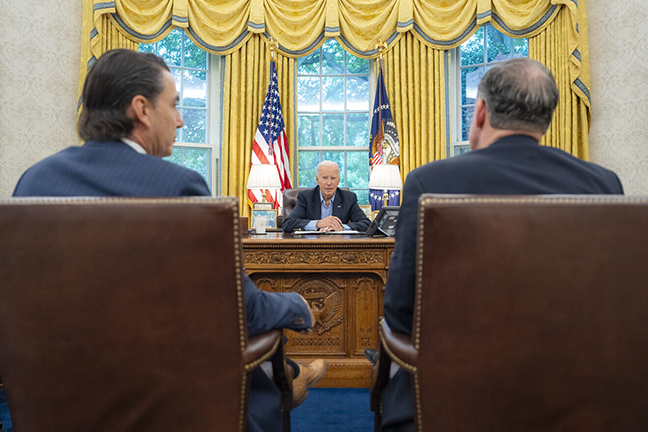The rioters don’t represent all Israeli Arabs, and are hurting the Arab public

by Yoseph Haddad
(JNS) — The instigators of the violent riots across Israel in recent days do not represent Israel’s Arab society. They are the extremists among us, who have managed to recruit hundreds of young men with nothing better to do.
Nevertheless, the responsibility of being the mature adult rests on the representatives of the Arab public, especially the Arab members of the Knesset. Instead of calming the storm, they attacked the Jewish state and its policies and expressed full support for the rioters.
As a result, Israeli-Arab society has been dragged by these extremists and political leaders into the Israel-Hamas confrontation. Social media has exploded with anti-Arab messages and calls to boycott Arab businesses, but let’s take a moment and understand: there were several hundred rioters, but there are 1.9 million Arabs living in Israel. To state that all Arab Israelis as rioters is simply not accurate.
We, Israeli Arabs, stood with the Jewish state during the coronavirus pandemic as doctors and nurses, battling the virus side by side with our Jewish colleagues. Remember Ibrahim Maher, the Israeli Arab nurse at Ha’emek Medical Center in Afula who recited the traditional “Shema Yisrael” prayer for his Jewish patient, who was on his deathbed and whose family was most likely not going to make it in time to see him?
We, Israeli Arabs, mobilized a week ago to offer support following the Lag B’Omer disaster. Arab cities like Tamra and Zarzir set up rest stops for evacuees from Mount Meron to have something to eat and drink on their way home. Residents of Jish and Yafa an-Naseriyye helped the evacuees and even donated blood.
All surveys conducted in recent years show that the issues Israel’s Arab society cares about most are internal social problems: violence and crime, housing, education and infrastructure. In every single survey, the Israeli-Palestinian conflict ranks at the bottom of the list.
The same is true of the political arena. In the March elections, the Israeli Arab public has chosen the party that promised to represent the interests of Arab citizens and act, first and foremost, with our interest in mind, even at the expense of foreign issues (a promise they unfortunately seem to have gone back on).
The extremist minority among us was waiting for an opportunity to stir up violence. And what better way to do so than staging a danger to the Al-Aqsa Mosque? These rioters took to the streets to hurt Jews, but what they harmed the most was the Israeli Arab society. They undid all the effort toward integration and partnership.
If one looks at who benefits from the situation, one will understand the complete picture. Extremists on both sides, who oppose coexistence, use the current events to justify their actions, and the vast majority, the sane ones, pay the price.
We must not let this set us back. It is unclear how much damage these events have caused or how long it will take to rebuild the trust we worked so hard to acquire, but we, the Israeli Arabs, have an opportunity to support and promote a new Arab leadership that will do all that MKs Ayman Odeh and Mansour Abbas have failed to do: genuinely represent the Arabs of Israel and turn us into an integral part of Israeli society.
Yoseph Haddad is the CEO of Together–Vouch for Each Other, an NGO that aims to bridge the Arab sector of Israeli society with Israeli society as a whole.



